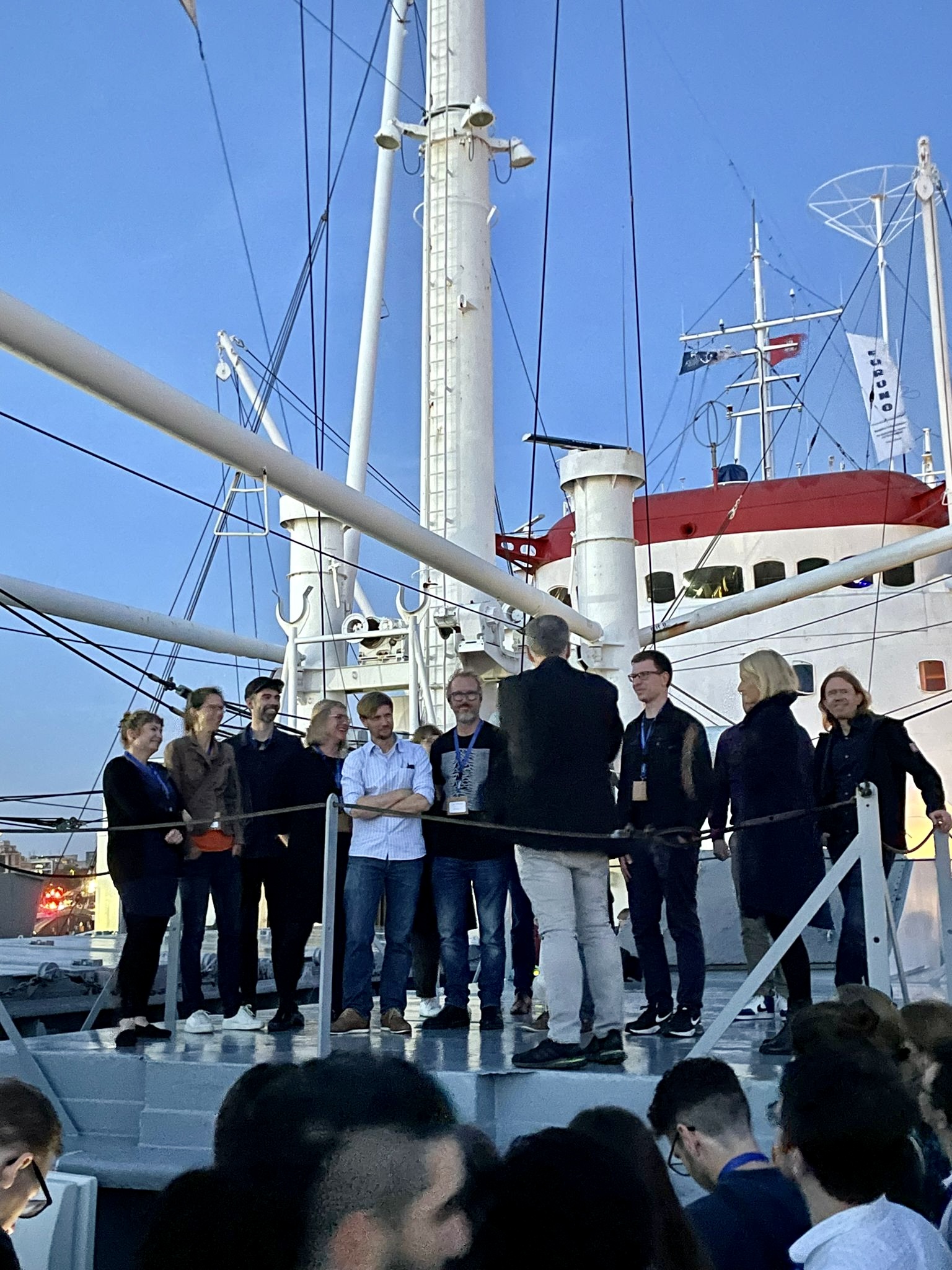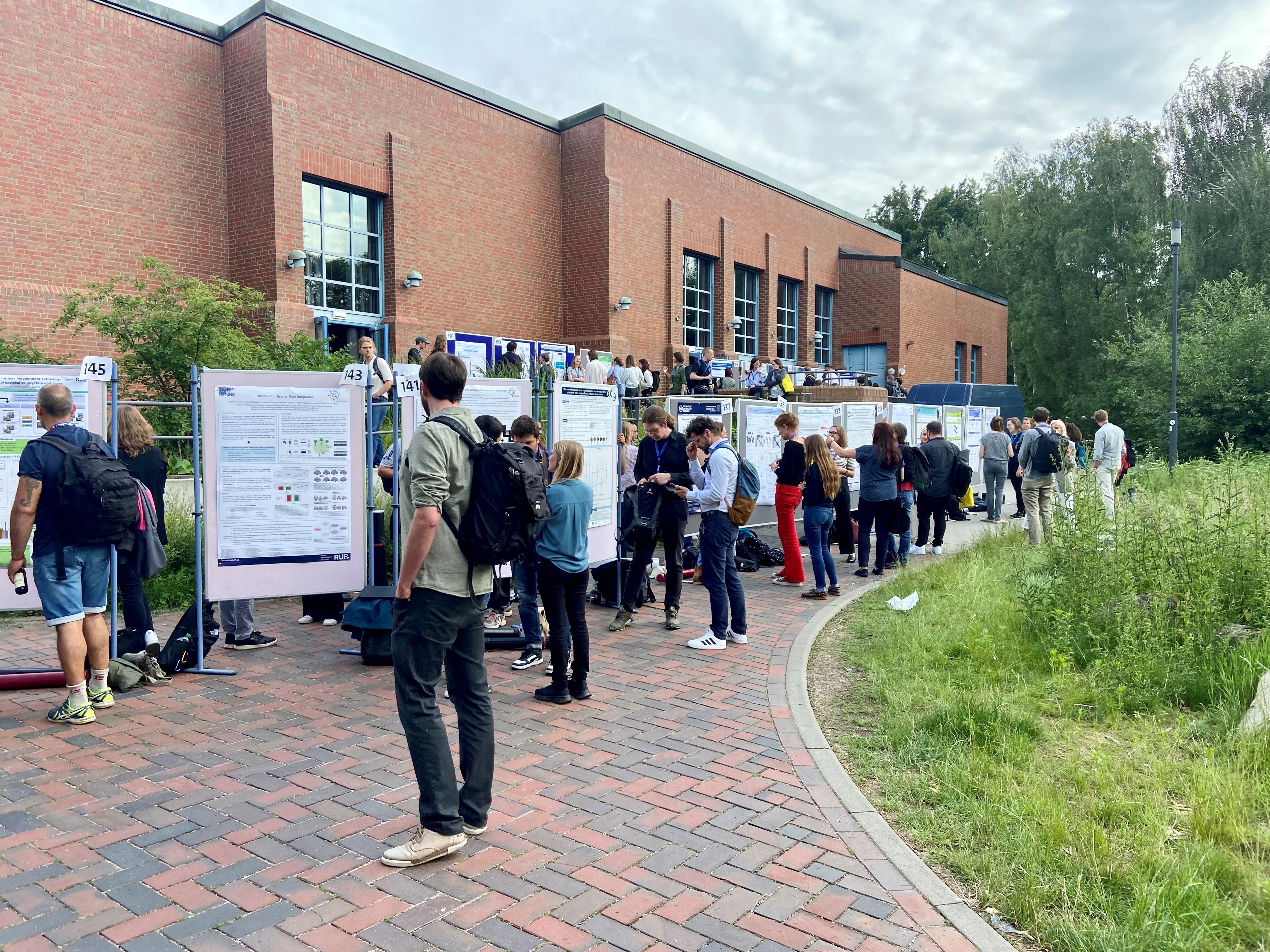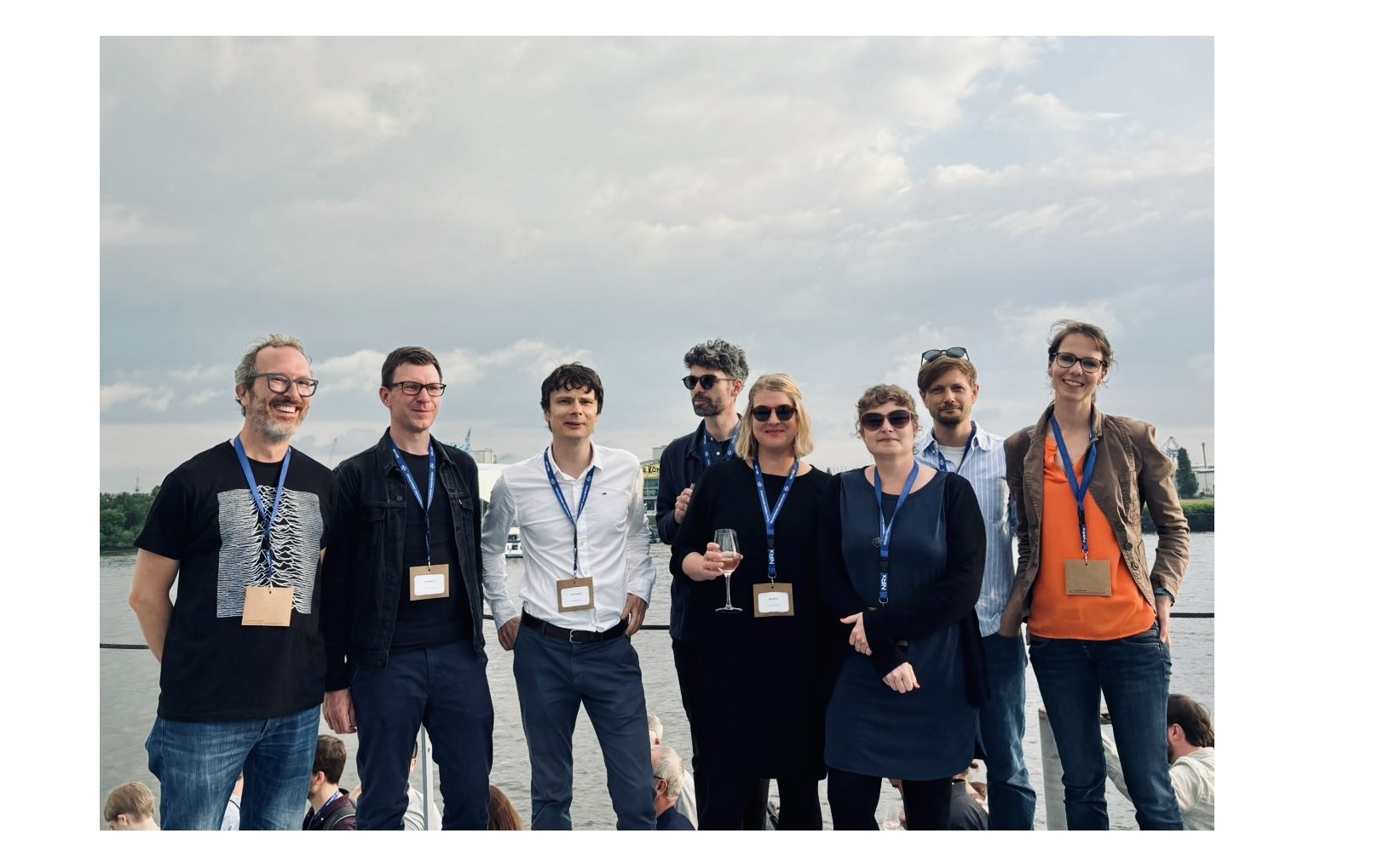Herzlich Willkommen!
Liebe Kolleginnen und Kollegen,
wir freuen uns, Sie vom 29. Mai bis 01. Juni 2024 zur 49. Jahrestagung „Psychologie und Gehirn“ an die Universtität Hamburg einzuladen.
Die gemeinsam mit der Fachgruppe Biologische Psychologie und Neuropsychologie der Deutschen Gesellschaft für Psychologie (DGPs) und der Deutschen Gesellschaft für Psychophysiologie und ihre Anwendung (DPGA) organisierte traditionsreiche Fachtagung bietet ein breites Spektrum von den neurobiologischen Grundlagen des Verhaltens bis zur anwendungsorientierten psychologischen Forschung. Das Tagungsprogramm wird hochkarätige Hauptvorträge, themenspezifische Vortragssymposien und wissenschaftliche Postersessions sowie Pre-Conference Workshops für Jungwissenschaftlerinnen und Jungwissenschaftler bieten – und nicht zuletzt vielfältige Gelegenheit zu Austausch und Vernetzung in hanseatischer Atmosphäre.
Das ganze Team freut sich sehr darauf, Sie bei uns in Hamburg willkommen heißen zu dürfen!
- Helen Blank
- Patrick Bruns
- Anja Riesel
- Brigitte Röder
- Sebastian Gluth
- Lars Schwabe
- Nico Schuck
- Tina Lonsdorf
- Jan Wacker
Verantwortlich für die Website: Celestina Hermida da Costa
Abschied/Dank
Wir blicken auf eine erfolgreiche 49. Jahrestagung Psychologie und Gehirn der Fachgruppen Biologische Psychologie und Neuropsychologie der Deutschen Gesellschaft für Psychologie (DGPs) und der Deutschen Gesellschaft für Psychophysiologie und ihre Anwendung (DPGA) hier in Hamburg zurück. Wir haben uns gefreut, hier in Hamburg so viele angesehene nationale und internationale Wissenschaftler begrüßen zu dürfen und haben den Austausch, die Energie und die Atmosphäre genossen. Wir möchten allen Teilnehmern dafür danken, dass sie die Konferenz zu einem so großen Erfolg gemacht haben.
Das PUG Organisationstam (Helen Blank, Patrick Bruns, Sebastian Gluth, Tina Lonsdorf, Anja Riesel, Brigitte Röder, Nico Schuck, Lars Schwabe, Jan Wacker)
Liebe Tanzwütige,
wir von der PuG-Band müssen dieses Jahr schweren Herzens wegen erheblicher Besetzungsprobleme unseren Beitrag zum Gesellschaftsabend zurückziehen. Die Entscheidung ist uns nicht leicht gefallen und wir freuen uns jetzt bereits in Würzburg wieder voll durchzustarten. Um die Chancen dahingehend zu optimieren, können sich alle Menschen, die sich gerne musikalisch beteiligen möchten, kurz per Mail wenden an: mario.reutter@uni-wuerzburg.deLiebe Grüße,
Die Psych'n'Groove Band
Keynote Speakers
-

Katharina von Kriegstein
Technische Universität Dresden
Human auditory communication – from visual face areas to sensory thalamus
Understanding what is said and recognising the identity of the speaker are two important tasks that the human brain is faced with in auditory communication. For a long time, neuroscientific models of auditory communication have focused mostly on auditory language and voice-sensitive cerebral cortex regions to explain speech and voice identity recognition. However, we now know that the brain uses even more complex processing strategies for recognising auditory communication signals, such as the recruitment of dedicated visual face areas, as well as subcortical sensory thalamus structures. In the first part of my talk, I will present a short overview on our neuroscientific findings how visual face areas help processing auditory communication signals. I will also show studies that translate the neuroscience findings to computational models. In the second part, I will focus on the contribution of subcortical sensory thalamus structures to speech recognition. I will review 7-Tesla neuroimaging findings from typically developed participants as well as developmental dyslexics that suggest a major role of the sensory thalami in speech recognition.
-

Nils B. Kroemer
Universität Bonn and Universität Tübingen
Body-brain interactions in the control of motivation
To ensure survival, optimal reward-seeking requires adaptation to internal and external states, and it is thought that our actions operate on a deeply engrained metabolic budget. Although goal-directed behavior has often been linked to prefrontal circuits, emerging evidence suggests a pivotal role of ascending signals from the body in tuning reward-related behavior according to bodily demands. In this talk, I will review the growing support for bodily signals as key modulators of instrumental behavior and the neural pathways subserving adaptation. First, I will summarize the motivational effects of interventions targeting ascending bodily signals, such as non-invasive transcutaneous vagus nerve stimulation (tVNS). Second, I will discuss the potential mechanistic role of bodily signals, such as gastric myoelectric frequency that regulates the speed of the digestive tract, in the control of motivation. Third, I will evaluate the implications of a focus on body-brain interactions for an improved understanding of the etiology and treatment of frequent mental disorders using major depressive disorder as an example. Fourth, I will highlight remaining challenges and open questions to unlock the potential of novel techniques to effectively modulate goal-directed behavior via the body. Taken together, conceptualizing bodily signals transmitted via vagal afferent as catalysts for goal-directed actions opens new avenues for theory-driven translational work that may help contextualize key motivational symptoms as a result of aberrant body-brain interactions.
-

Karin Roelofs
Donders Centre for Cognitive Neuroimaging and Radboud University Nijmegen
Human defensive reactions and their role in approach-avoidance decision making
Behavioural scientists often assume that automatic defensive threat reactions, while essential in explaining animal behavior, only have limited value when it comes to understanding human behavior. There is, however, increasing evidence that defensive reactions, such as freezing, have an impact on subsequent approach-avoidance decisions under acute threat in humans. Understanding the mechanisms that drive such decisions is particularly relevant for patients with anxiety disorders, whose persistent avoidance is key to the maintenance of their anxiety. In recent years, computational psychiatry has made substantial progress formalizing the mechanisms through which we make (mal)adaptive decisions. However, most current models simply ignore the transient psychophysiological state of the decision maker. Here, I argue that the balance between para-sympathetic and sympathetic activity is instrumental in driving the psychophysiological state of freezing, and that it influences approach-avoidance decisions under acute threat in different ways. To illustrate, I first explore the effects of freezing on different kinds of human action decisions under threat. Next, I discuss recent translational (rodent-human) work that has helped to characterize the neural mechanisms implicated in animal and human defensive freezing. Finally, through two prospective longitudinal studies, I show that individual differences in susceptibility to freezing are predictive of the development of anxiety symptoms. Overall, this work suggests that defensive threat reactions and associated psychophysiological states not only affect acute decision making, but also predict long-term symptom development. As such, these factors have great importance for resilience research, and should constitute an integral part of any theory of human decision making.
Location
Die diesjährige Jahrestagung "Psychlogie und Gehirn" findet im Burgerhaus Wilhelmsburg statt.
Bürgerhaus WilhelmsburgMengestr. 20
21107 Hamburg

Anmelden
| Tickets | Frühe Registrierungen bis 31.03.2024 |
Späte Registrierungen bis 27.05.2024 |
Gesellschafts- abend |
|---|---|---|---|
| Mitglieder DGPs/DGPA |
210€ | 270€ | 125€ |
| Nicht-Mitglieder | 280€ | 350€ | 125€ |
| Studierende /Promovierende* |
110€ | 140€ | 95€ |
Vom 6. Mai bis zum 19. Mai werden ermäßigte Partytickets (40 €, Zutritt ab 21:30 Uhr, 2 Freigetränke) angeboten. Diese sind ausschließlich für bereits registrierte Studierende und Promovierende verfügbar. Reguläre Gesellschaftsabendtickets können ebenfalls bis zum 19. Mai gebucht werden.
Vortrag Einreichen
Für jeden Beitrag eines angenommenen Symposiums muss ein Abstract verfasst werden. Der Umfang darf 250 Wörter nicht überschreiten. Beachten Sie, dass Abstracts auf Englisch verfasst werden müssen. Bitte verwenden Sie keine Grafiken oder Verlinkungen.
















